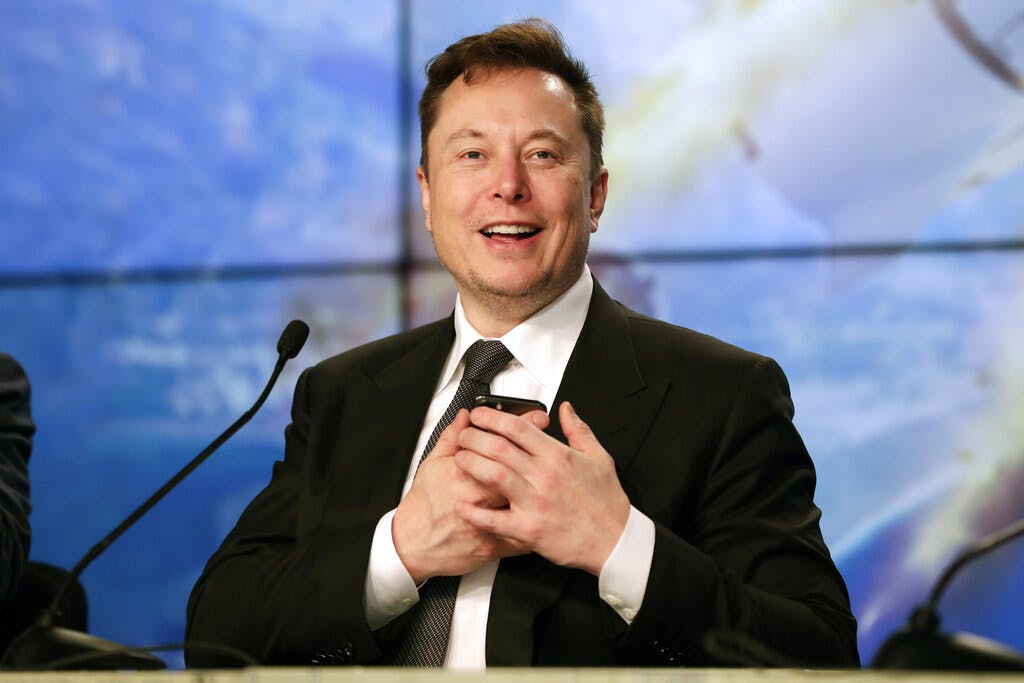Corporate Battle Royale Seen as Musk, Vanguard Face Off Over Twitter
The fate of what Musk labeled the ‘de facto town square’ for journalists and public figures is not just a business but also a bellwether for billionaires and the technology platforms that do so much to shape public opinion.

The battle to control Twitter appears likely to escalate from a lone ranger takeover to a full-scale corporate battle royale. That prospect emerged as the world’s richest man, Elon Musk, was joined by another player, the Vanguard Group, in making a move for the social media icon.
At stake is not only a company for which Mr. Musk stands ready to pay $43 billion — what he calls his “best and final offer” — but a platform that remains a clearinghouse for political opinion and debate.
The fate of what Mr. Musk labeled in a speech Thursday as the “de facto town square” for journalists and public figures is not just a business but also a bellwether for billionaires and the technology platforms that do so much to shape public opinion.
After Mr. Musk announced in a tweet his intentions to buy the entire company, Twitter employees on Thursday gathered to discuss the potential takeover. The company’s chief executive officer, Parag Agrawal, told staff during a question-and-answer session that the board had not yet decided on Mr. Musk’s offer.
However, later in the day it emerged that Vanguard had plowed enough money in recent months into Twitter to surpass Mr. Musk as its largest shareholder by a 10.3% to 9.1% margin. Twitter’s founder, Jack Dorsey, holds just 2% of the company. Vanguard currently has around $7 trillion of assets under management.
Vanguard and the maverick Mr. Musk could be on a collision course, as the Wall Street Journal notes that the hedge fund, which is a largely passive investor in Twitter, often sides with existing management and is less predisposed to radical change than a hedge fund or activist investor. Its bulging stake in Twitter presents a potential complication for Mr. Musk.
One member of Twitter’s board, Saudi prince Alalweed bin Talal al Saud, tweeted that “I don’t believe that the proposed offer by @elonmusk ($54.20) comes close to the intrinsic value of @Twitter given its growth prospects.” He has publicly rejected Mr. Musk’s attempt to buy Twitter.
If Twitter wants to thwart Mr. Musk, one option would be to adopt the ‘poison pill’ strategy, where the company sells shares to existing shareholders at a discounted rate, thus diluting Mr. Musk’s share.
Preemptively striking back against such a maneuver, Mr. Musk tweeted “if the current Twitter board takes actions contrary to shareholder interests, they would be breaching their fiduciary duty.” He went on to say that the liability Twitter would “thereby assume would be titanic in scale.”
The disclosure of Vanguard’s stake in Twitter capped a day when the company, which a former CEO once likened to the Greek agora, riveted the nation’s attention. Mr. Musk started the day off with a bang when he blasted out, “I made an offer” on Thursday and linked to a Securities and Exchange Commission filing that fills in the details of that gambit.
Mr. Musk, whose wealth derives from his ownership of Tesla, SpaceX, and a host of other companies, promises, “Twitter has extraordinary potential. I will unlock it.” Forbes estimates Mr. Musk’s total worth as $265.5 billion.
In materials included in his bid for ownership, Mr. Musk maintained, “Twitter needs to be transformed as a private company.” Mr. Musk hopes to pay $43 billion for Twitter, which works out to $54.20 a share.
The latest twist in the long running drama between this modern day Midas, who enjoys more than 81 million followers on the platform, and Twitter comes after the outspoken chief executive on April 4 bought that 9.2 percent stake in the company.
When news broke this week that he would not assume a place on the company’s board, which would have activated a 14.9 percent ownership cap, some speculated that Mr. Musk was hunting for bigger game. That has now come to pass.
The attempt by Mr. Musk to purchase Twitter has spotlighted questions over moderation and freedom of speech on the platform. On March 25, Mr. Musk tweeted a poll that asked respondents if they believe Twitter “rigorously adheres” to the proposition that free speech “is essential to a functioning democracy.”
More than two million people responded, with more than 70 percent answering in the negative. No doubt contributing to this sense of unease around Twitter’s governance is that President Trump is permanently banned from the platform, even as President Putin, the Taliban, and the Ayatollah Khamenei retain their accounts.
Another source of anger toward Twitter was the handling of the coverage of Hunter Biden’s infamous laptop, which earned the New York Post a blanket ban in 2020, though elements of that coverage have now been corroborated by the New York Times.
Others point to how the social media platform censored speculation on the origins of Covid-19 despite a range of views on the source of the deadly virus.
In a letter sent to Twitter’s chairman, Bret Taylor, Mr. Musk wrote that he believes Twitter to be “the platform for free speech around the globe” but that “the company will neither thrive nor serve this societal imperative in its current form.”
It remains to be seen whether this self-styled “free speech absolutist” can not only criticize, but control, the platform he uses to such great effect. It is now up to Twitter’s board whether it accepts Mr. Musk’s offer or continues as a publicly traded company. Either way, the town hall is now up for grabs.

